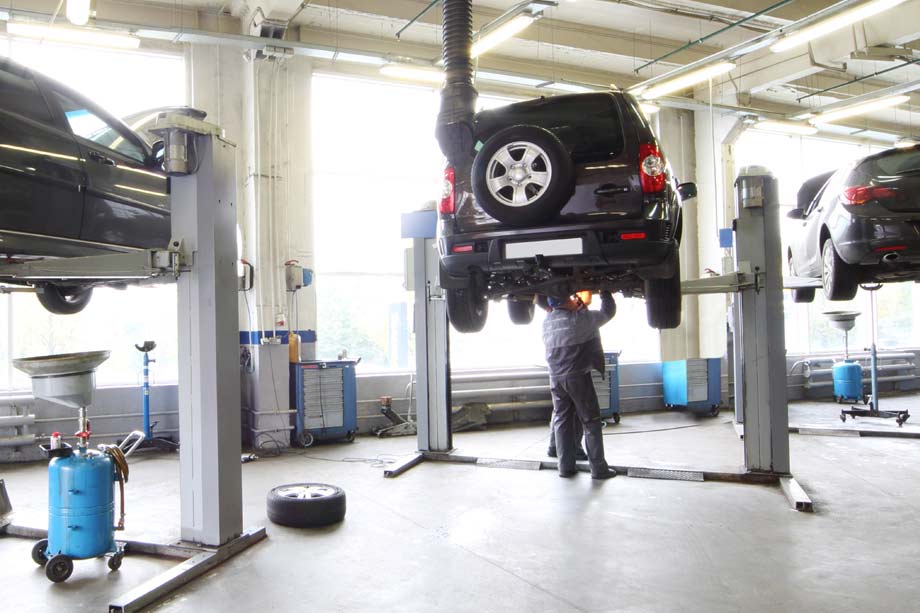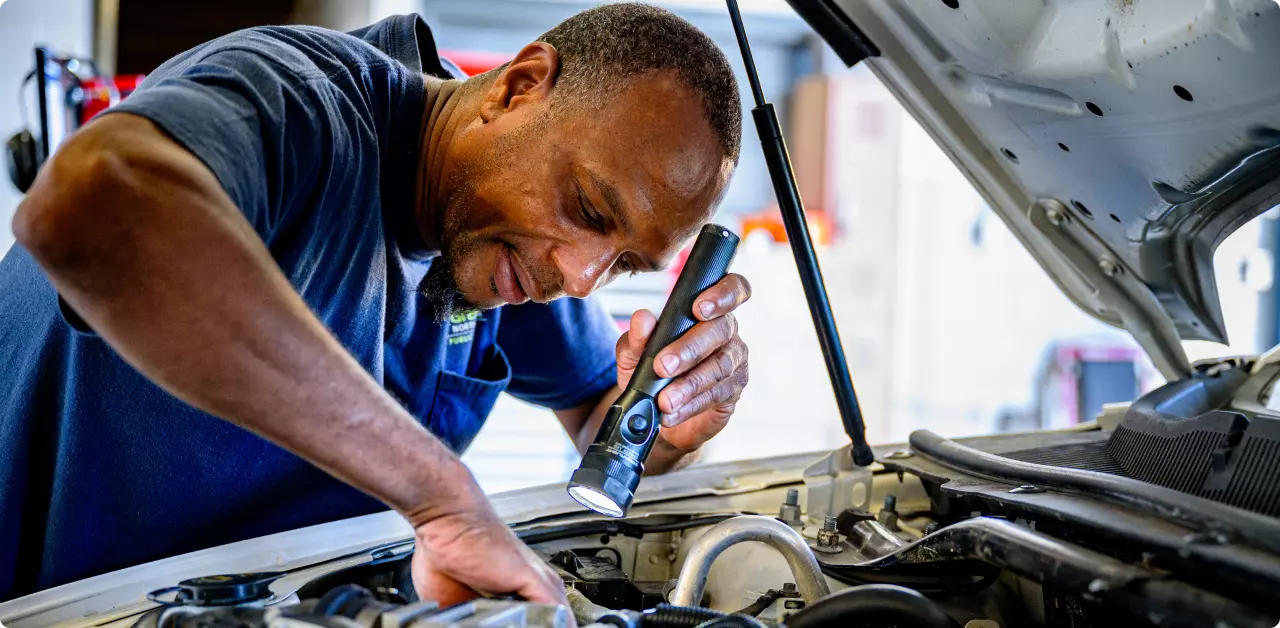All Categories
Featured
When your cars and truck gets too hot, it can really feel like a major emergency situation, yet staying calm and adhering to the right steps can stop serious engine damage and assistance obtain you back when traveling safely. In this message, we'll discover what to do if your vehicle overheats and use preventative suggestions to lower the threat of overheating in the future.
What to Do If Your Automobile Overheats. Pull Over to a Safe Place The initial and essential action if your cars and truck starts to overheat is to pull over to a risk-free area asap. Switch on your danger lights and direct your vehicle to the shoulder or into a car park. Keeping your auto running while it's overheated can cause extreme damage to the engine, so it's critical to shut the engine off today.
Let the Engine Cool Down Once you've safely quit, enable the engine to cool down. You need to never try to open the radiator cap while the engine is still warm, as the release of heavy steam or hot coolant can cause burns. Wait at least 15-20 mins to permit the engine temperature to go down to a safer level before proceeding.
![]()
Inspect the Coolant Degree After the engine has actually cooled, inspect the coolant degrees by inspecting the reservoir or radiator. If it's reduced, leading it off with a combination of coolant and water (as defined by your vehicle's supplier) Always make use of care when opening up the coolant storage tank, as pressure may have developed.
Try To Find Visible Leakages While you wait on the engine to cool, visually check the radiator, hose pipes, and coolant storage tank for any type of visible leaks or cracks. A dripping radiator or tube is a common reason for getting too hot. It's much better to call a tow solution than threat driving better and causing extra damages. if you locate a considerable leakage.
Restart the Engine After permitting the engine to cool down and making certain the coolant is completed, begin the engine and monitor the temperature level scale. If the temperature remains to climb quickly, it's best to shut the engine off and require roadside aid or a tow to the nearby auto mechanic.
![]()
Just How to stop Getting Too Hot in the Future. Regularly Examine Coolant Degrees Among the easiest ways to avoid overheating is by maintaining the appropriate level of coolant. Gradually, coolant can vaporize, so on a regular basis examine the coolant degrees in the storage tank. Low coolant degrees can cause the engine to get too hot swiftly, so leading it off as required.
Inspect the Radiator The radiator plays a crucial function in maintaining the engine cool. Regularly check the radiator for any clogs, dust, or particles that could block air movement. If you notice any kind of indicators of damage, such as corrosion or leaks, have it repaired or changed as soon as possible.
Change the Thermostat and Water Pump A malfunctioning thermostat or water pump is an usual cause of overheating. The thermostat regulates the flow of coolant, while the water pump distributes it with the engine. It can stop proper air conditioning if either part is malfunctioning. Have your mechanic evaluate these components frequently and change them when essential.
Flush the Air conditioning System Over time, coolant can deteriorate and come to be inefficient, triggering a buildup of particles in the system. Purging the air conditioning system every 30,000 miles, or as advised in your automobile's manual, helps to remove any sludge or accumulation and makes certain the cooling system is working effectively.
Screen the Condition of the Hoses The hoses in your vehicle's cooling system can wear or split gradually. Evaluate the hoses for any kind of indicators of wear, such as bulging, fractures, or leakages, and replace them if needed. Avoiding coolant leaks can go a lengthy method in avoiding overheating.
![]()
Drive Responsibly Hostile driving, such as accelerating promptly or driving at high rates, places extra strain on your engine and its cooling system. Try to drive at moderate speeds, particularly on hot days or when driving on high inclines, to reduce the chances of overheating.
Stay Clear Of Overloading Your Lorry Lugging excessive weight in your lorry puts stress and anxiety on the engine and air conditioning system. Constantly bear in mind your automobile's weight restriction, especially if you're hauling hefty lots, towing a trailer, or driving cross countries in heat.
Final thought. A getting too hot auto can be a frightening experience, however understanding how to respond and prevent it can save you time, money, and prospective engine damage. Always check your coolant degrees, evaluate essential components like the radiator, thermostat, and hose pipes, and comply with a regular maintenance schedule. By remaining on top of your lorry's cooling system, you can decrease the risk of overheating and delight in a smoother, much safer driving experience.
What to Do If Your Automobile Overheats. Pull Over to a Safe Place The initial and essential action if your cars and truck starts to overheat is to pull over to a risk-free area asap. Switch on your danger lights and direct your vehicle to the shoulder or into a car park. Keeping your auto running while it's overheated can cause extreme damage to the engine, so it's critical to shut the engine off today.
Let the Engine Cool Down Once you've safely quit, enable the engine to cool down. You need to never try to open the radiator cap while the engine is still warm, as the release of heavy steam or hot coolant can cause burns. Wait at least 15-20 mins to permit the engine temperature to go down to a safer level before proceeding.

Inspect the Coolant Degree After the engine has actually cooled, inspect the coolant degrees by inspecting the reservoir or radiator. If it's reduced, leading it off with a combination of coolant and water (as defined by your vehicle's supplier) Always make use of care when opening up the coolant storage tank, as pressure may have developed.
Try To Find Visible Leakages While you wait on the engine to cool, visually check the radiator, hose pipes, and coolant storage tank for any type of visible leaks or cracks. A dripping radiator or tube is a common reason for getting too hot. It's much better to call a tow solution than threat driving better and causing extra damages. if you locate a considerable leakage.
Restart the Engine After permitting the engine to cool down and making certain the coolant is completed, begin the engine and monitor the temperature level scale. If the temperature remains to climb quickly, it's best to shut the engine off and require roadside aid or a tow to the nearby auto mechanic.

Just How to stop Getting Too Hot in the Future. Regularly Examine Coolant Degrees Among the easiest ways to avoid overheating is by maintaining the appropriate level of coolant. Gradually, coolant can vaporize, so on a regular basis examine the coolant degrees in the storage tank. Low coolant degrees can cause the engine to get too hot swiftly, so leading it off as required.
Inspect the Radiator The radiator plays a crucial function in maintaining the engine cool. Regularly check the radiator for any clogs, dust, or particles that could block air movement. If you notice any kind of indicators of damage, such as corrosion or leaks, have it repaired or changed as soon as possible.
Change the Thermostat and Water Pump A malfunctioning thermostat or water pump is an usual cause of overheating. The thermostat regulates the flow of coolant, while the water pump distributes it with the engine. It can stop proper air conditioning if either part is malfunctioning. Have your mechanic evaluate these components frequently and change them when essential.
Flush the Air conditioning System Over time, coolant can deteriorate and come to be inefficient, triggering a buildup of particles in the system. Purging the air conditioning system every 30,000 miles, or as advised in your automobile's manual, helps to remove any sludge or accumulation and makes certain the cooling system is working effectively.
Screen the Condition of the Hoses The hoses in your vehicle's cooling system can wear or split gradually. Evaluate the hoses for any kind of indicators of wear, such as bulging, fractures, or leakages, and replace them if needed. Avoiding coolant leaks can go a lengthy method in avoiding overheating.
Drive Responsibly Hostile driving, such as accelerating promptly or driving at high rates, places extra strain on your engine and its cooling system. Try to drive at moderate speeds, particularly on hot days or when driving on high inclines, to reduce the chances of overheating.
Stay Clear Of Overloading Your Lorry Lugging excessive weight in your lorry puts stress and anxiety on the engine and air conditioning system. Constantly bear in mind your automobile's weight restriction, especially if you're hauling hefty lots, towing a trailer, or driving cross countries in heat.
Final thought. A getting too hot auto can be a frightening experience, however understanding how to respond and prevent it can save you time, money, and prospective engine damage. Always check your coolant degrees, evaluate essential components like the radiator, thermostat, and hose pipes, and comply with a regular maintenance schedule. By remaining on top of your lorry's cooling system, you can decrease the risk of overheating and delight in a smoother, much safer driving experience.
Latest Posts
Atlantic City's Top Kosher Wedding Locations
Published Jan 08, 25
1 min read
Gate Fencing Function Art
Published Jan 08, 25
0 min read
Incorporating Smart Technology into Your Custom Gates and Fences
Published Jan 08, 25
1 min read